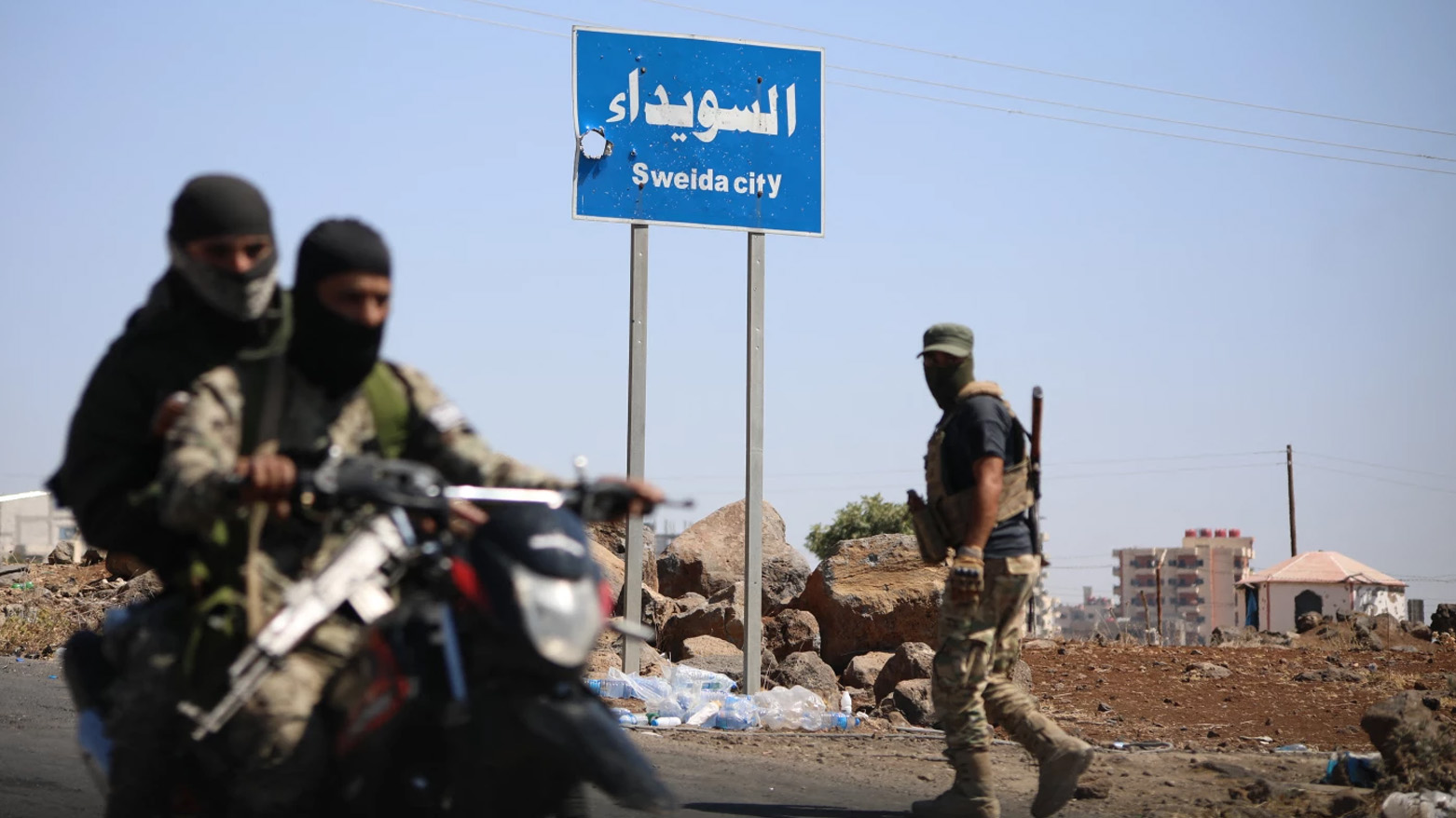"They Killed My Entire Family": Survivors Recount Brutal Crackdown in Sweida
Survivors in Syria's Sweida province describe killings, forced displacement, and abuse by government-affiliated forces amid ongoing humanitarian shortages. The Syrian Observatory for Human Rights documented 57 civilian deaths in October from sectarian and revenge violence nationwide.

ERBIL (Kurdistan24) – Although active fighting in Sweida province has largely ceased, the humanitarian and social scars left behind are deep and enduring. The Syrian Observatory for Human Rights (SOHR) has documented disturbing testimonies from residents describing killings, forced displacement, and systemic abuse by government-affiliated security units, painting a grim picture of life in the aftermath of the clashes.
According to the Observatory’s report, civilians in several parts of Sweida remain under siege-like conditions, facing acute shortages of food, medicine, and electricity, as well as continuing fear and trauma following widespread violence.
In a testimony shared with SOHR, T.M., a resident of Tha‘la village in Sweida’s countryside, recounted the horror of a government raid that turned his community into a war zone.
“When the security forces entered our village, they opened fire to terrify the residents,” he said. “They humiliated our elders — even cutting their mustaches — before looting homes and shops, and finally setting fire to what was left.”
T.M. estimated the population of the village at 8,000 residents, noting that most have been forcibly displaced, while those who remained faced immediate threats of death or injury.
“It’s been twelve days under siege,” he added. “Snipers from the security forces are stationed around us. No food, no medicine, no fuel, no electricity. We queue for hours just to get bread. All we ask is to open the Sweida–Damascus road and allow basic necessities to reach us.”
“They Killed My Entire Family”
Another testimony, given by R.A., a survivor from Sweida city, underscores the brutality that accompanied the raids.
“I am the only survivor from my family of 14,” she said, her voice trembling. “An armed group wearing military uniforms — believed to be from the security forces — stormed our home. They spoke in an Idlibi accent and shot my entire family before my eyes.”
Wounded by two bullets, R.A. survived by feigning death.
“I pretended to be dead so they would leave me,” she continued. “My mental state is shattered. My family never carried weapons. They thought the men entering the house came to protect them, not to execute them.”
She appealed for an independent investigation into the killings, urging that the perpetrators be identified and brought to justice, calling the massacre “a crime against unarmed civilians who had no role in the conflict.”
In a separate report, the Syrian Observatory for Human Rights documented a surge in revenge and sectarian killings across multiple provinces throughout October, resulting in 57 civilian deaths — including eight women and one child — underscoring the country’s deepening societal divisions and the failure to protect civilians.
The killings, which occurred in Damascus, Homs, Hama, Aleppo, Latakia, Tartus, Idlib, and Daraa, were largely motivated by sectarian affiliation or local disputes, according to SOHR.
The Observatory warned that the persistence of sectarian and retaliatory violence is pushing Syria further into social fragmentation and despair.
“These incidents highlight the urgent need for accountability mechanisms and protection for civilians,” the report stated, urging both domestic and international actors to intervene to end impunity and promote civil peace and reconciliation.
As survivors in Sweida struggle to rebuild amid destruction and grief, and with violence still spreading across the country, Syria’s civilian population continues to bear the unbearable — trapped between a collapsing state, unrestrained armed actors, and a justice system that remains painfully out of reach.